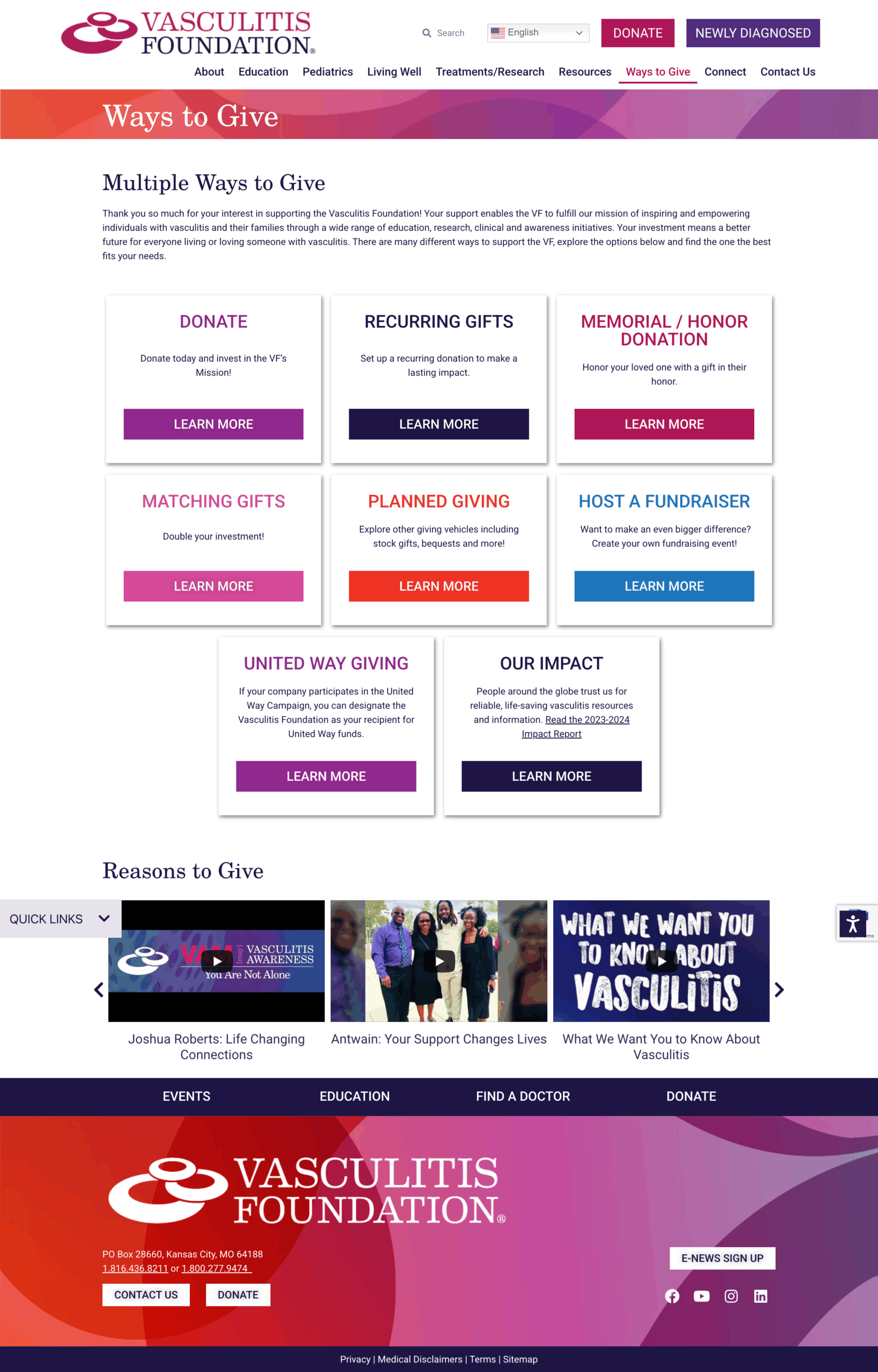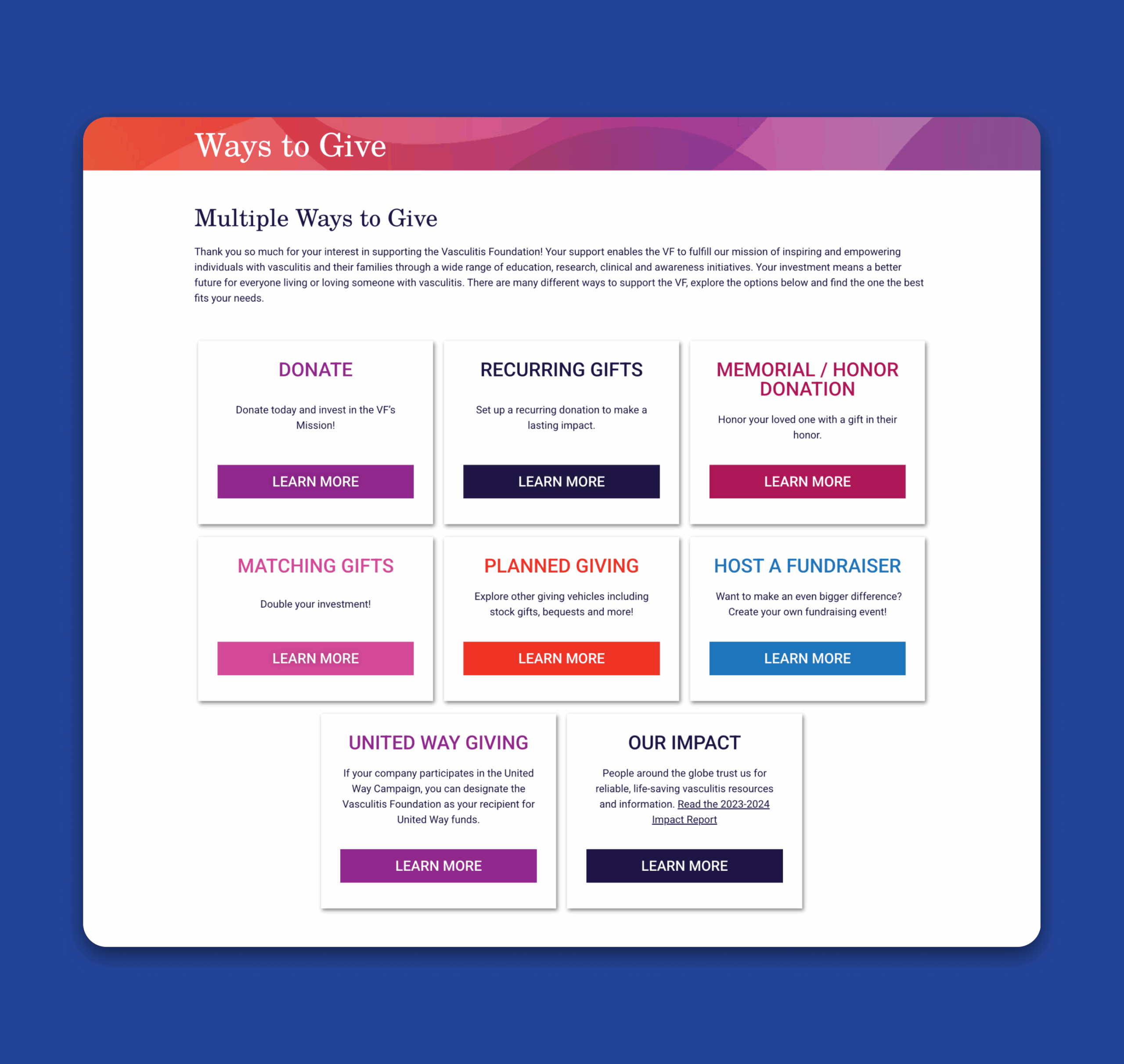Vasculitis Foundation
Promoting better outcomes for patients with vasculitis

Stabilizing Salesforce for the foundation
The Vasculitis Foundation partnered with Fíonta to stabilize its Salesforce Nonprofit Success Pack (NPSP) instance and increase its value across fundraising, outreach, and operations. Their goals centered on improving data integrity, streamlining internal processes, and enhancing donor stewardship.
Challenges
- Poor data quality
- Lack of clear internal processes
- Key features in NPSP were not fully implemented
- Low visibility into fundraising and engagement metrics
- Incomplete integrations
Solutions
- Reorganize and clean up data model
- Set up standard operating procedures
- Implement NPSP configuration updates
- Create customized reports and dashboards
- Correct and optimize integrations
Results
- Improved quality and usability of program data
- Improved donor engagement and stewardship
- Increased efficiency by adding automations and streamlining processes
Working with Fionta was fantastic. We were extremely impressed with their efficiency, knowledge, and communication throughout the entire partnership. Would highly recommend working with their team to maximize your Salesforce database.
Project highlights
-
Improving constituent records
We reorganized the data model, cleaned records, and implemented conventions to make constituent data easier to understand and act on.
-
Strengthening donor engagement
We introduced engagement plans and defined donor levels, automating tasks and reminders to support more consistent and meaningful stewardship.
-
Standardizing donation tracking
We introduced engagement plans and defined donor levels, automating tasks and reminders to support more consistent and meaningful stewardship.
-
Optimizing integrations
We reviewed and corrected configuration issues in Blackthorn and Mailchimp, improving reliability and ensuring smoother data flow between platforms.
Project Summary
Over three sprints, Fíonta delivered targeted improvements to build team alignment, improve stewardship, and streamline operations. Sprint 1 introduced new donation record types, refined soft credit definitions, and laid the groundwork for consistent tracking. Sprint 2 focused on donor stewardship: establishing staff portfolios, automating engagement plans, and generating timely task reminders. Sprint 3 improved data entry practices, streamlined integrations, and introduced dashboards to guide strategic decisions.
Outcomes
As a result of this work, the Vasculitis Foundation achieved:
- Greater staff confidence in the accuracy and completeness of data
- Shared understanding of key processes, including donation entry and acknowledgement
- Time savings through the automation of previously manual tasks
Deploying changes incrementally allowed the internal team to see progress in real time. Collaboration with the Foundation’s Salesforce admin and external consultant ensured that changes were both technically sound and tailored to internal needs.




